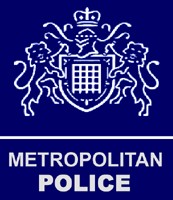This advice is for people who have experienced harassment and wish to access help and seek redress.Harassment is words or behaviour – often persistent – that are intimidating, hostile, degrading, humiliating or offensive.The Peter Tatchell Foundation (PTF) is unable to take on individual cases – we are a very small organisation, with very limited staffing and resources. But we can help direct you to the appropriate organisations to get the advice and the support you need.Harassment is illegal under the Equality Act 2010 and the Protection From Harassment Act 1997. Taken together, these two laws variously cover all forms of harassment, in all circumstances, from the workplace to public places.You can take action and seek redress if you have suffered harassment on the grounds of your race, gender, disability, age, religion or belief or your actual or perceived sexual orientation / gender identity.
Prepare a written statement
It is very important that you document the harassment that is occurring / has occurred. Your statement needs to be concise and set out in separate, neatly spaced paragraphs. It should state the facts of what happened – names, dates, times, places and who said and did what. Keep to the facts rather than including comments or opinions. At the end, state your objections to what happened ie. your complaint and set out what you want to be done – what redress you are seeking and from whom. This statement can be given to any agency that you approach for help. It will assist them to assist you.
Community Safety Unit
When you have prepared your statement, you should make an appointment to see the police in the Community Safety Unit (Hate Crimes section) at your local police station. Do not take your statement to, or report the harassment to, the front desk (unless it is an emergency). You should give the Community Safety Unit officers a copy of your statement and ask them to take the action you want.
Equality Advisory Support Service (EASS)
The Equality Advisory Support Service (EASS) gives free advice, information and guidance to individuals on equality, discrimination and harassment issues.The EASS website is here:
http://www.equalityadvisoryservice.com/ Phone: 0800 800 0082
Textphone: 0808 800 0084 Or you can contact the EASS here:
http://www.equalityadvisoryservice.com/app/ask
You can write to them at:
FREEPOST,
Equality Advisory Support Service,
FPN4431
Galop
If the harassment is homophobic or transphobic, contact Galop. It is an agency that specialises in dealing with anti-LGBT hate crime and harassment. They are London based but they can offer advice wherever you are located.Galop’s website is here: http://www.galop.org.uk/
You can call their helpline on 020 7704 2040 or their office number is 020 7704 6767. Their email address is info@galop.org.uk
The postal address is:
Galop
Resource For London
356 Holloway Rd
London
N7 6PA
Stonewall
Another help option in the case of LGB harassment is Stonewall, the national gay rights charity. Its website is a good or general information and advice on what to do if you are experiencing homophobic harassment.Among other things, the website has a very useful guide on how LGB people are protected from discrimination, harassment and victimisation at work. It also sets out the steps you need to take to secure action against the perpetrators. Follow this link: https://www.stonewall.org.uk/help-advice/discrimination/discrimination-work
You can also phone Stonewall for informal advice on the Freephone number 08000 50 20 20, which operates Monday to Friday from 9.30am to 5.30pm. Or you can email the Stonewall Information Service on: info@stonewall.org.uk
Trade Union
If the harassment has happened in the workplace, approach your trade union for help – both for general advice and for specialist legal advice. Ask if your union will offer to secure and fund a solicitor who is an employment law specialist. If your union won’t provide you with legal support, you will have to find one yourself. You may be able to get legal aid, depending on your income.
Workplace LGBT support networks
If your case is LGBT-related, you should also contact your trade union’s LGBT group, your organisation’s LGBT staff network (if one exists) and any local LGBT groups, as they often provide advice and support in cases of homophobic harassment and other hate crimes.
Other options
Another option is to seek the advice and support of your local Citizen’s Advice Bureau or Neighbourhood Law Centre.
Contact your MP
Finally, you should also contact your local MP. They should be able to take up your case. If you do not know your local MP , you can find out and email them direct from this website: http://www.writetothem.com/
You can also phone your MP’s office at the House of Commons via the main switchboard: 0207 219 3000. Ask for the MP’s secretary or researcher.Even better, visit your local MP at their weekly advice surgery. The location, dates and times can be obtained from your local town hall or library – or from the website of your local MP.
Personal contact tends to get better results. Take your prepared written statement, so that your MP will have all the facts of your case at his/her fingertips. Ask them to write on your behalf to the people you are complaining against.

